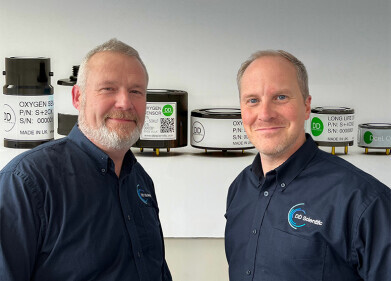Business News
Could Pollution Be More Expensive After Brexit?
Jun 29 2020
In the wake of Britain’s secession from the EU, the UK government has announced plans to bring in its own carbon market. According to reports, the new market will outstrip European ambitions to reduce greenhouse gas (GHG) emissions over the coming years, meaning it could be more expensive to burn fossil fuels in the UK than ever before.
Although it is expected to mirror the existing system put in place by Brussels in many facets, the UK may choose to deviate on several key points. This would make it more challenging for power plants, factories and airlines to eschew their environmental responsibilities and could pave the way for Britain to reach net-zero CO2 emissions by the middle of the century. In any case, the creation of a new system makes prudent sense in the event that a no-deal exit from the bloc becomes a reality.
The status quo
The EU’s Emissions Trading Scheme (ETS) was first launched in 2005 and currently includes all 27 members of the bloc, plus Iceland, Liechtenstein and Norway. It provides monetary incentives for over 11,000 heavy polluters from all different kinds of industries to reduce their carbon emissions, covering almost half (45%) of all GHG emissions from the EU.
The system operates on a principle of cap-and-trade, whereby businesses can buy or sell carbon credits to others if they exceed or fall short of the upper threshold of their allowed emissions. It encourages them to enhance their earnings (and increase their savings) by investing in sustainable technology like carbon capture and storage (CCS), energy-efficient autoclaves and renewable sources of power. Last year, the system generated a whopping €34 billion for the bloc’s coffers, although the price of carbon has never exceeded €31 per tonne.
Forging its own path
The EU system applies to more than a thousand power plants, aviation companies and factories in the UK, which are expected to be drafted into the new market currently being devised by government ministers. Among the proposals on the table, the UK is planning to set the cap on emissions 5% below the EU level, with a reassessment of the situation scheduled for 2024.
As the country approaches the deadline for net-zero emissions (of 2050), there is speculation that the price per tonne of CO2 could even exceed £100, which is more than three times the highest ever price recorded by the EU and almost five times the current level. Bold initiatives like these could sow the seeds to grow a sustainable low-carbon economy, as businesses are gently persuaded of the economic benefits of facing up to their environmental responsibilities.
“It’s quite bullish in the ambition there,” remarked Richard Howard, research director of data-driven consultancy firm Aurora Energy Research. “It’s already signalling that this market will be tightened and consequently actors within the market will either have to pay a higher price and/or take stronger steps to decarbonize activities.”
Digital Edition
IET 34.2 March 2024
April 2024
Gas Detection - Biogas batch fermentation system for laboratory use with automatic gas analysis in real time Water/Wastewater - Upcycling sensors for sustainable nature management - Prist...
View all digital editions
Events
Apr 22 2024 Hannover, Germany
Apr 22 2024 Marrakech, Morroco
Apr 23 2024 Kuala Lumpur, Malaysia
Apr 23 2024 Kintex, South Korea
Apr 23 2024 Edmonton, AB, Canada



















